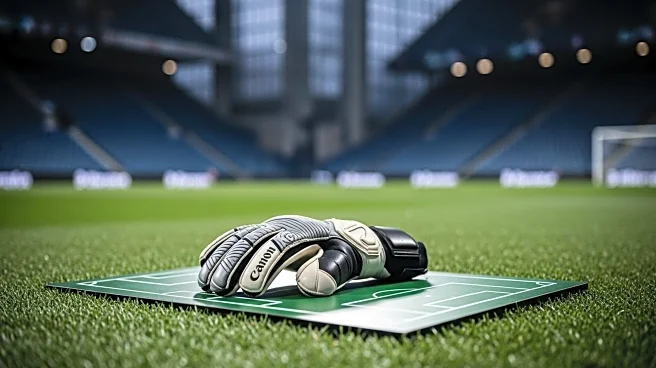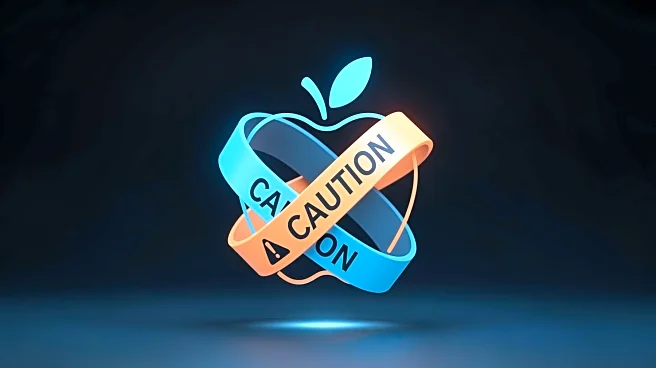What's Happening?
Manchester City has signed Gianluigi Donnarumma from Paris Saint-Germain, marking a significant change in their goalkeeping strategy. The move comes after Ederson's departure to Fenerbahce, who was known for his exceptional passing skills that allowed Manchester City to play a unique style under Pep Guardiola. Donnarumma, recognized as one of the best shot-stoppers globally, presents a different profile with less emphasis on ball distribution. This shift could lead to tactical changes for Manchester City, as Donnarumma's passing ability is not on par with Ederson's, potentially affecting the team's play style.
Why It's Important?
The signing of Donnarumma could have a profound impact on Manchester City's tactical approach. Ederson's ability to contribute to offensive plays through precise long passes was a cornerstone of Guardiola's strategy. With Donnarumma, City may need to adapt to a more traditional goalkeeping style, focusing on defensive solidity rather than offensive contributions from the goalkeeper. This change could influence how opponents strategize against City, possibly leading to more high pressing tactics to exploit Donnarumma's less proficient passing skills.
What's Next?
Manchester City may need to adjust their gameplay to accommodate Donnarumma's strengths and weaknesses. Guardiola might implement new strategies that leverage Donnarumma's shot-stopping abilities while compensating for his less effective distribution. Opposing teams could increase their pressing intensity, knowing that City might be less capable of playing out from the back. The Premier League's evolving style, with a focus on transitions and direct attacks, might align with this shift, potentially leading to a broader change in how City approaches matches.
Beyond the Headlines
The transition from Ederson to Donnarumma could reflect a broader trend in football, where the emphasis on goalkeeper distribution is balanced with traditional shot-stopping skills. This shift might indicate a change in Guardiola's philosophy, adapting to the evolving dynamics of modern football, which increasingly values defensive capabilities amidst high-pressure situations. The move could also influence other clubs to reassess their goalkeeping strategies, prioritizing defensive reliability over offensive contributions.









